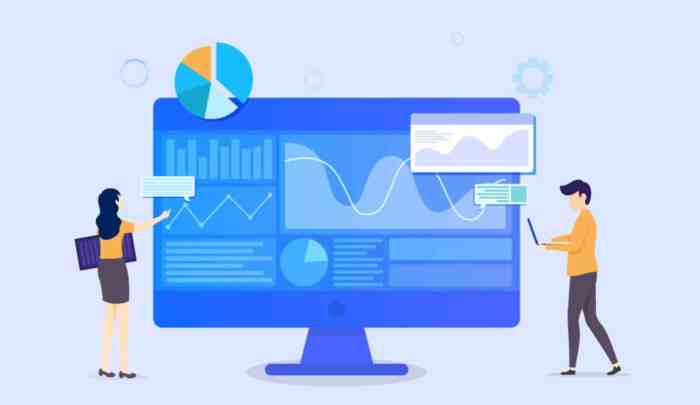Best RMM for small businesses? Finding the right Remote Monitoring and Management (RMM) solution can feel like navigating a minefield. For small businesses, juggling tight budgets, limited IT staff, and the constant threat of cyberattacks is a daily reality. The right RMM can be the difference between smooth sailing and a complete IT meltdown, offering streamlined management, enhanced security, and significant cost savings.
This guide cuts through the jargon and helps you find the perfect fit.
We’ll explore key criteria for selecting an RMM, compare leading platforms based on features, pricing, and target customer size, and delve into essential security considerations. From automating tasks to improving disaster recovery, we’ll show how the right RMM can boost your business’s efficiency and resilience. Get ready to optimize your IT infrastructure and focus on what truly matters: growing your business.
Array
Choosing the right RMM solution can be a game-changer for small businesses. Seeing how others have benefited provides invaluable insight into the potential return on investment. Let’s explore some real-world scenarios and discover how RMM software significantly improves IT efficiency and safeguards against costly disruptions.
Real-world examples showcase the tangible advantages of RMM for small businesses. From streamlining daily tasks to preventing major IT disasters, the benefits are clear and impactful. These case studies demonstrate how RMM solutions translate into cost savings, increased productivity, and enhanced peace of mind.
Fictional Case Study: “Green Thumb Gardens”
Green Thumb Gardens, a small but rapidly growing organic vegetable farm, was struggling to manage its IT infrastructure. Their three employees constantly faced issues with slow computers, software updates, and network connectivity problems. These issues were impacting productivity and causing frustration. After implementing a robust RMM solution, Green Thumb Gardens experienced a dramatic improvement. The RMM software automatically patched software vulnerabilities, remotely monitored system performance, and proactively identified and resolved potential issues before they escalated.
The result? Employee productivity increased by 15%, and IT-related downtime decreased by 70%. The RMM’s centralized management dashboard also simplified IT administration, saving the farm owner valuable time previously spent troubleshooting individual computer problems. The initial investment in the RMM software quickly paid for itself through increased efficiency and reduced downtime.
RMM Software Preventing Costly IT Incidents, Best rmm for small businesses
Proactive monitoring and automated maintenance are crucial for avoiding costly IT incidents. Imagine a scenario where a critical server failure shuts down a small business’s operations for several days. The financial implications—lost revenue, customer dissatisfaction, and potential legal repercussions—can be devastating. RMM software helps mitigate these risks. Through real-time monitoring, RMM solutions detect anomalies, such as unusual CPU usage or storage space depletion, allowing for prompt intervention.
Automated patching prevents security vulnerabilities that could lead to ransomware attacks or data breaches. Furthermore, the ability to remotely access and manage devices enables swift troubleshooting and resolution of problems, minimizing downtime and its associated costs. For example, a small accounting firm avoided a significant data loss incident thanks to their RMM system’s automated backup functionality, which triggered a recovery after a hard drive failure.
Benefits of RMM for Disaster Recovery and Business Continuity
Implementing an RMM solution offers several crucial benefits for disaster recovery and business continuity. These benefits are particularly vital for small businesses with limited IT resources.
The following points highlight the significant role RMM plays in ensuring business continuity:
- Automated Backups: RMM software automates data backups, ensuring regular and reliable data protection against various threats, such as hardware failures, natural disasters, or cyberattacks. This significantly reduces the risk of data loss and ensures business continuity.
- Remote Access and Management: In the event of a disaster, remote access capabilities enable IT administrators to access and manage systems remotely, minimizing disruption and facilitating faster recovery.
- Proactive Monitoring and Alerting: Real-time monitoring and automated alerts allow for the early detection of potential problems, enabling proactive intervention before they escalate into major incidents, minimizing downtime.
- Simplified Disaster Recovery Planning: RMM streamlines the disaster recovery planning process by providing a centralized platform for managing backups, restoring data, and monitoring system health.
Choosing the best RMM for your small business is a crucial decision impacting your security, efficiency, and bottom line. By carefully considering factors like scalability, pricing, security features, and user experience, you can find a solution that aligns perfectly with your needs and budget. Remember, the right RMM isn’t just about managing your IT; it’s about empowering your business to thrive in today’s digital landscape.
Don’t let IT headaches hold you back – take control and unlock your business’s full potential.
Essential FAQs: Best Rmm For Small Businesses
What is the average cost of RMM software for small businesses?
The cost varies greatly depending on the number of devices, users, and features. Expect to pay anywhere from a few dollars per device per month to several hundred dollars per month for comprehensive solutions.
Can I try an RMM before committing to a purchase?
Many RMM providers offer free trials or demos, allowing you to test the software and its features before making a decision. This is highly recommended.
How much IT expertise do I need to use RMM software?
The level of technical expertise required depends on the chosen RMM and your needs. Some platforms are user-friendly and require minimal technical knowledge, while others demand more advanced skills.
What happens if my RMM provider goes out of business?
Data migration can be complex. Choose a reputable provider with a proven track record and consider data backup strategies independent of the RMM itself.
How do I choose between cloud-based and on-premise RMM?
Cloud-based RMM is generally more affordable and easier to manage, while on-premise offers more control but requires dedicated hardware and IT expertise.
Remember to click Insulated Siding Key to Energy-Efficient Homes to understand more comprehensive aspects of the Insulated Siding Key to Energy-Efficient Homes topic.
